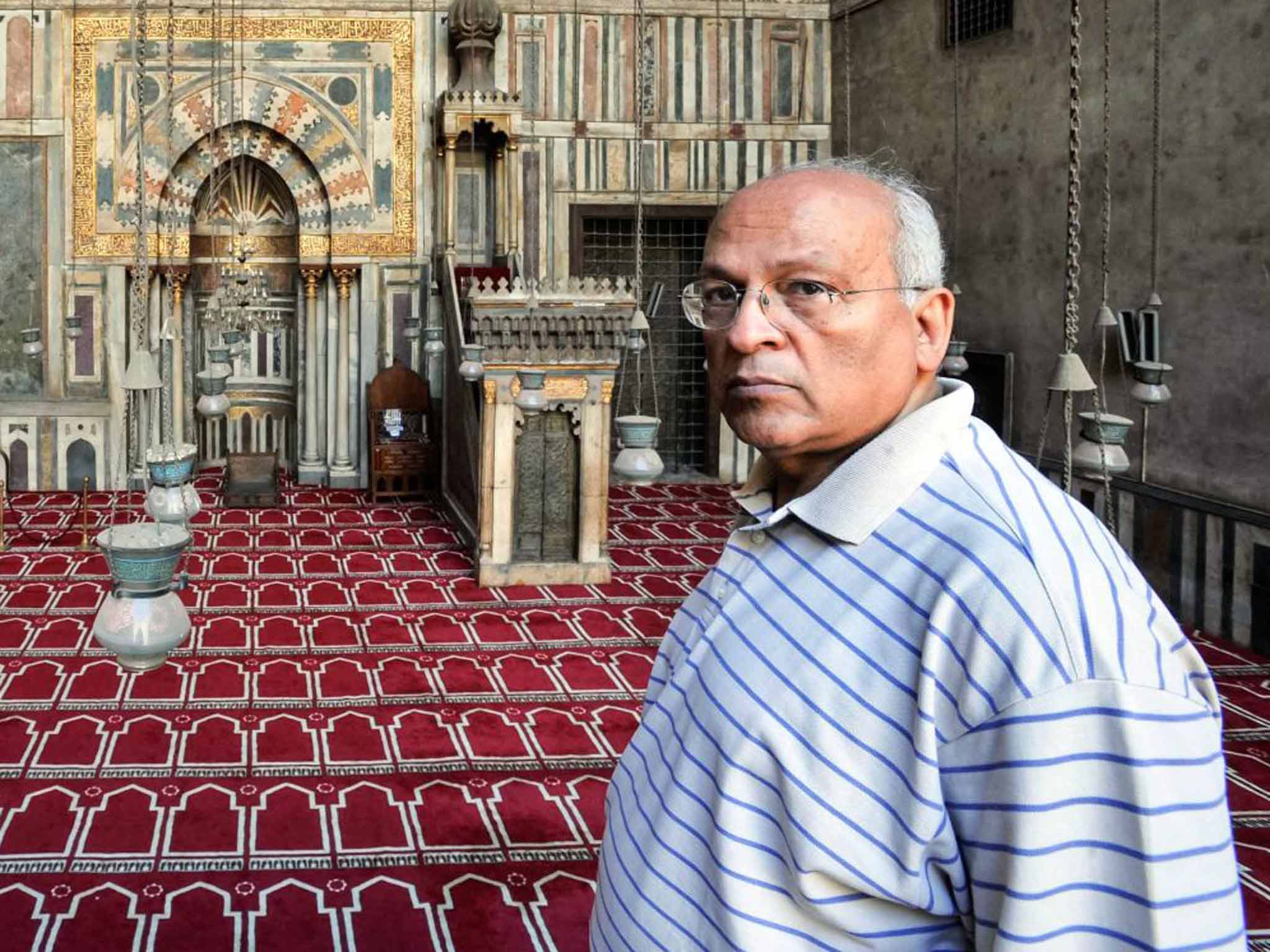Gamal el-Ghitani: Egyptian author who wrote caustic political parables and founded outspoken 'Akhbar Al-Adab'
He was an outspoken critic of the Muslim Brotherhood and supported the military's overthrow of Islamist president Mohamed Morsi in 2013

Your support helps us to tell the story
From reproductive rights to climate change to Big Tech, The Independent is on the ground when the story is developing. Whether it's investigating the financials of Elon Musk's pro-Trump PAC or producing our latest documentary, 'The A Word', which shines a light on the American women fighting for reproductive rights, we know how important it is to parse out the facts from the messaging.
At such a critical moment in US history, we need reporters on the ground. Your donation allows us to keep sending journalists to speak to both sides of the story.
The Independent is trusted by Americans across the entire political spectrum. And unlike many other quality news outlets, we choose not to lock Americans out of our reporting and analysis with paywalls. We believe quality journalism should be available to everyone, paid for by those who can afford it.
Your support makes all the difference.Gamal el-Ghitani was one of Egypt's most acclaimed novelists, perhaps best known for the classic novel Zayni Barakat, a scathing critique of totalitarianism set in the Mamluk era.
He pioneered a style which was, said Humphrey Davies, who translated Ghitani's Pyramid Texts and The Mahfouz Dialogues, a series of conversations with Nobel laureate writer Naguib Mahfouz, “a kind of magic realism but an intensely Egyptian sort, with roots in both the history of Arabic literature but also areas such as Sufism and magic... He managed to combine these in a very compelling way. A very distinctive voice has been lost.”
Born into a poor family in the town of Guhayna in Upper Egypt, Ghitani worked as a carpet designer before becoming a war correspondent for the Egyptian newspaper Akhbar el-Yom in the late 1960s. In 1993 he founded Akhbar Al-Adab, Egypt's most prominent literary publication, and ran it as editor in chief until 2011. Under his leadership, the publication was viewed as an independent voice, often critical of the state.
“Culture, as we saw it, wasn't about the movements of intellectuals and the activities of the Ministry of Culture bodies, but about society in general. We were able to publish what none of the state-owned newspapers were able to share,” Ghitani said in a 2012 interview. He was an outspoken critic of the Muslim Brotherhood and supported the military's overthrow of Islamist president Mohamed Morsi in 2013.
Egypt's presidency issued statements praising Ghitani following his death, calling him a “symbol to Arab writers who mobilise their pens for the service of their homeland and their people”. The country's armed forces also paid tribute, saying, “We mourn the pioneer of pioneers of the Arabic novel, the guard of guards of nationalist culture, a warrior in the field of war literature, a correspondent and soldier on the battlefront wielding his pen as a weapon, and one of the first military correspondents.”
Ghitani won the Nile Award, Egypt's highest state honour, in 2015, and hundreds of people attended his funeral at Sayida Nafisa Mosque in Cairo.
Gamal el-Ghitani, novelist: born 9 May 1945; married Magda el-Gindi (one son); died Cairo 18 October 2015.
Join our commenting forum
Join thought-provoking conversations, follow other Independent readers and see their replies
Comments